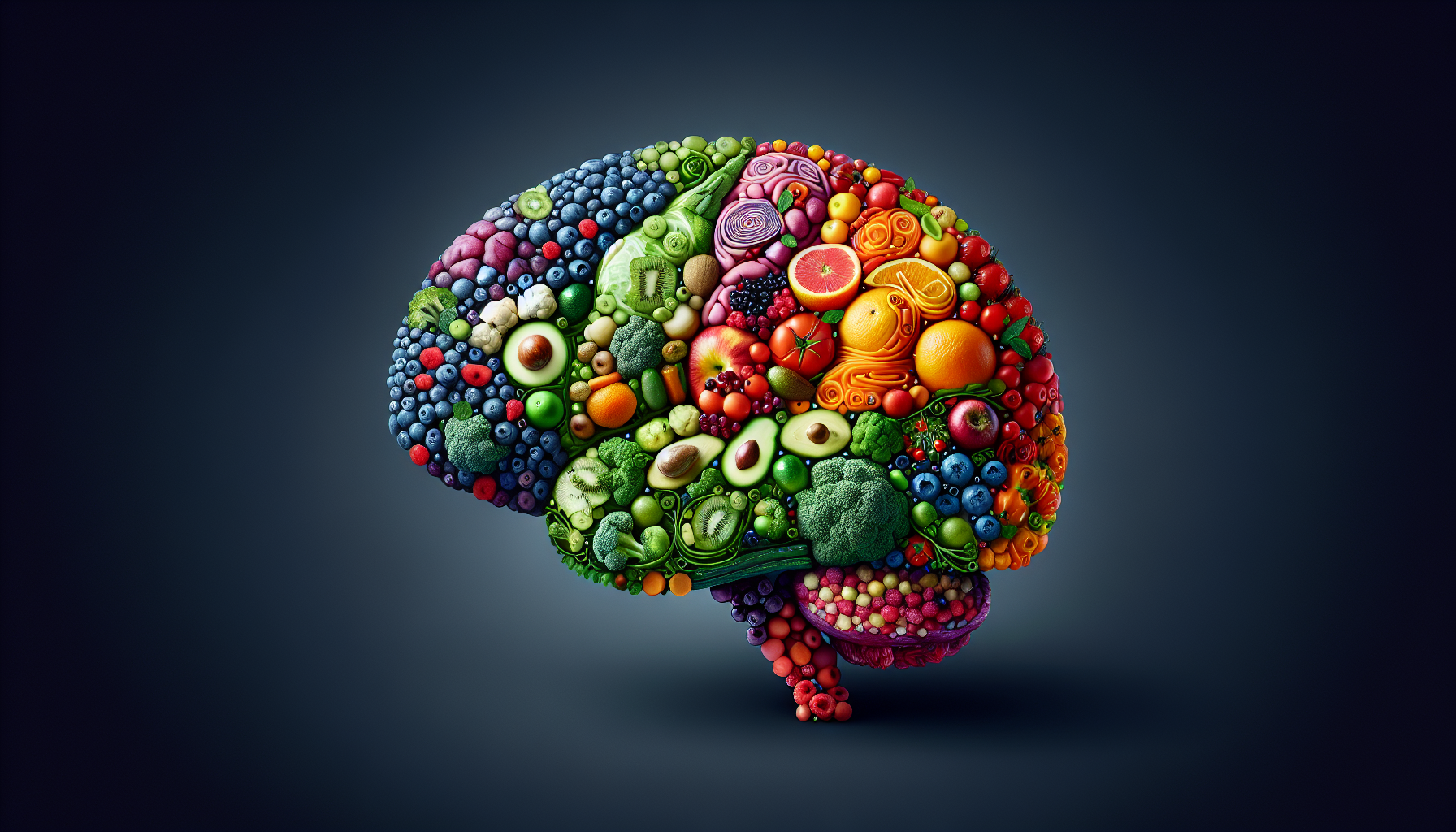The intricate workings of the human brain transcend mere biological understanding, as it stands at the crossroads of physiology, psychology, and philosophy. Yet, one undeniable truth prevails – the profound influence of nutrition on cognitive function. Here, we explore the symbiotic relationship between the brain’s intricate machinery and the nutrients that fuel its operations.
The Brain: A Metabolic Powerhouse
The human brain, a mere 2% of our total body weight, astonishingly consumes around 20% of our daily caloric intake. This disproportionate energy demand underscores the brain’s reliance on a steady and uninterrupted supply of nutrients. Cognitive processes such as memory, attention, and problem-solving are sustained by the brain’s high metabolic activity.
Nutritional Building Blocks for Cognitive Health
A balanced diet rich in essential vitamins, minerals, and antioxidants is crucial for maintaining cognitive health. Omega-3 fatty acids, found in oily fish, are known for their role in neuron structure and function. Antioxidants, abundant in berries and leafy greens, combat oxidative stress that can damage brain cells. B vitamins, particularly B12, B6, and folic acid, are essential for nerve function and the synthesis of neurotransmitters.
To delve deeper into the specifics of how nutrients affect the brain, let’s explore the roles of key supplements and their impact on cognitive function.
Omega-3 Fatty Acids: The Brain’s Oil
Omega-3 fatty acids, particularly DHA and EPA, are vital components of cell membranes in the brain, facilitating communication between neurons. Research has linked omega-3 supplementation with improved memory and slowed cognitive decline in older adults. For a comprehensive look at the brain’s nutritional needs, consider exploring Brain Health, which further delineates the critical nutrients that support cognitive function.
B Vitamins: The Cognitive Catalysts
B vitamins, particularly B12, B6, and folic acid, are pivotal in homocysteine metabolism, which, when dysregulated, can pose risks to cognitive health. Elevated homocysteine levels have been associated with neurodegenerative diseases. Supplementation with B vitamins has been shown to lower homocysteine levels, potentially reducing the risk of cognitive decline.
Antioxidants: The Brain’s Shield
Antioxidants such as vitamins C and E, selenium, and flavonoids protect the brain from oxidative damage. The brain is particularly vulnerable to free radicals due to its high oxygen consumption. Antioxidants neutralize these harmful compounds, preserving the structural integrity and functionality of neurons.
Curcumin: The Neuroprotective Compound
Curcumin, the active ingredient in turmeric, exhibits potent anti-inflammatory and antioxidant properties. Studies suggest that curcumin supplementation supports cognitive function by reducing inflammation and amyloid plaque buildup in the brain, hallmarks of Alzheimer’s disease.
Cognitive Enhancement Through Holistic Nutrition
Holistic nutrition considers the whole person, integrating physical, emotional, and environmental aspects of health. A holistic approach to nutrition involves not only the consumption of nutrient-rich foods and supplements but also the understanding of how lifestyle factors like stress and sleep patterns influence cognitive health. For further reading on holistic nutrition and its impact on the brain, the article Optimizing Brain Health Through Holistic Nutrition provides valuable insights.
The Synergy Between Diet and Cognitive Activities
The benefits of nutritional supplementation are often amplified when combined with cognitive activities that stimulate the brain. Engaging in Cognitive Enhancement Through Challenging Brain Games can help create new neural connections, which is essential for cognitive resilience.
External Resources Supporting Cognitive Health Through Nutrition
To further validate the role of nutrition in cognitive health, several niche resources offer extensive information:
- A study published in the Journal of Alzheimer’s Disease examines the correlation between omega-3 fatty acid levels and cognitive performance.
- The American Journal of Clinical Nutrition features research on how B vitamin supplementation influences brain function.
- An article in the Journal of Psychopharmacology discusses the neuroprotective effects of curcumin and its potential in cognitive health.
Real-world Applications: Nutritional Strategies for Cognitive Enhancement
To translate this knowledge into practical strategies, consider the following actionable steps:
- Incorporate Omega-3s: Regularly consume omega-3-rich foods like salmon, walnuts, and flaxseeds, or consider a high-quality fish oil supplement.
- B Vitamin Boost: Ensure adequate intake of B vitamins through a varied diet or with a comprehensive B complex supplement.
- Antioxidant-Rich Diet: Increase consumption of fruits and vegetables, particularly those high in antioxidants, such as berries and leafy greens.
- Curcumin Supplementation: Add turmeric to your meals or take a curcumin supplement to harness its cognitive benefits.
Challenges and Considerations in Nutritional Supplementation
Despite the clear advantages of nutritional supplements, there are challenges to consider. The bioavailability of certain supplements, potential interactions with medications, and the individual variability in nutrient absorption all play a role in their effectiveness. Consulting with a healthcare professional before starting any supplement regimen is crucial to tailor a plan that meets your unique needs.
Conclusion: Nourishing the Mind for a Brighter Future
The pursuit of cognitive wellness is a multifaceted journey, where nutrition plays a pivotal role. By understanding and utilizing the power of nutritional supplements, we can support our brain’s health and enhance cognitive function. As we continue to unravel the complexities of the brain, let’s nourish it with the right nutrients, engage in stimulating activities, and adopt a holistic approach to our overall well-being.
In the end, the harmonious blend of a nutrient-dense diet, mental exercise, and a balanced lifestyle forms the foundation for cognitive longevity and vibrant mental health.



